GameSpotting: Versus
You thought you had our number after that first-round flawless victory, but the GameSpot editors have just begun to fight.
Welcome to GameSpotting. Ready? Fight!!
You thought you had our number after that first-round flawless victory, but the GameSpot editors have just begun to fight. In this, the latest edition of everyone's favorite weekly editorial feature, we drop knowledge on the wickedness of budget PC games, the troubles of online RPGs, the shame of being a side talker, Nintendo's sleeves and what it's keeping up there, and so much more. Attack the feature however you like, and feel free to put your pair of pennies together and comment in our forums.
Greg Kasavin/Executive Editor
"You're completely screwed. Customers are completely screwed. The retailer is completely screwed. Nobody wins but the publisher of the horrible budget game that should never have been made."
Andrew Park/Senior Editor
A few of the most obvious pitfalls that continue to plague new massively multiplayer games.
Alex Navarro/Assistant Editor
"I have to admit something that may shock, alarm, or perhaps even horrify you. You see, I have an N-Gage."
Jeff Gerstmann/Senior Editor
"I guess that for all the talking Nintendo was doing about the functionality and exchange between devices, I expected a little too much."
Tim Tracy/Senior Producer, GameSpot Live
"The way information is spread on the Internet is akin to playing a game of telephone with your friends at a party."
Ryan Mac Donald/Executive Producer, GameSpot Live
"Seeing these guys in action has got me thinking about the various online worlds that live and breathe every day while the rest of us go to work or school."
Claudette Burnette/Account Coordinator
Want to work with games, but don't like to write? Claudette tells you about other opportunities.
Dan Logue/GuestSpotter
"Maybe I'm old-fashioned, but if I can touch it, then it's real."
John Q. Gamer/GuestSpotter
For many of us, video games are more than just a hobby; they're a fundamental part of our lifestyles. If you've got something to say about games, gamers, or anything related to electronic entertainment, read our GuestSpotting FAQ, and submit your own column.
| Greg Kasavin Executive Editor |
The Madness Must End
Just now, I experienced a defining moment here at my job. But not in a very good way. What happened was, I approved the lowest-ever review score to be given on GameSpot. This means, out of the 5,000 games we've reviewed during the course of nearly eight years, this one is the worst by far. The upper limit of our scoring system has been reached; it's been a while since the last one, but we have in fact given out four perfect-10 scores over the years. Yet, never has a game sunk as low as Big Rigs: Over the Road Racing.
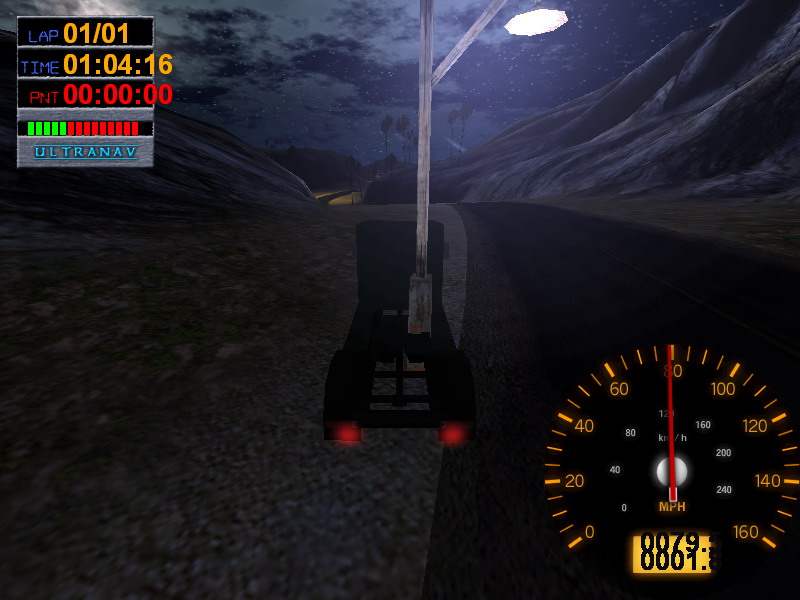
I paid $20 of my own money to purchase this game from a leading retailer, so I assure you that it is, in fact, an actual product that can be purchased for real money. And it's representative of one of the most sinister secrets of PC gaming--the fact that store shelves are cluttered with absolute garbage that you've never heard of and that some unwitting fools out there are parting with their hard-earned money to impulsively purchase the products and, in so doing, are funding the continued production of such products...which, in turn, feeds the vicious cycle, reduces shelf space for infinitely more deserving games, and ultimately makes the world a worse place to live (though, admittedly, perhaps a slightly more interesting one).
Needless to say: This must stop. It's only funny for a little while.
Here's the issue: There are no standards when it comes to the PC gaming industry. Whereas console manufacturers like Sony, Microsoft, and Nintendo presumably have final approval over whether or not a game can be published on their respective platforms, no one's going to stop you from publishing a new PC game if you have the means. Presumably, a horrible product is going to sell poorly. But there seems to be a new business model that's been "pioneered" by a few less-than-ethical game publishers out there. These publishers apparently put more effort into carefully crafting an alluring package for a computer game than into making that computer game remotely entertaining in any way. They give the game an interesting premise, put a nice, beveled picture and a cool logo on the front of the box, write some compelling descriptions on the back, and suggest a low retail price. An unsuspecting customer could easily be fooled.
Development of these games is outsourced to other nations with much weaker economies than that of the United States. As such, development costs are minimal--perhaps as low as in the thousands. Therefore, in a practical sense, these games need only sell a small number of copies to turn a profit and to justify further efforts along the same lines. The United States has a big population, and these publishers don't need or expect repeat customers. Instead, they can indefinitely screw over one-time customers.
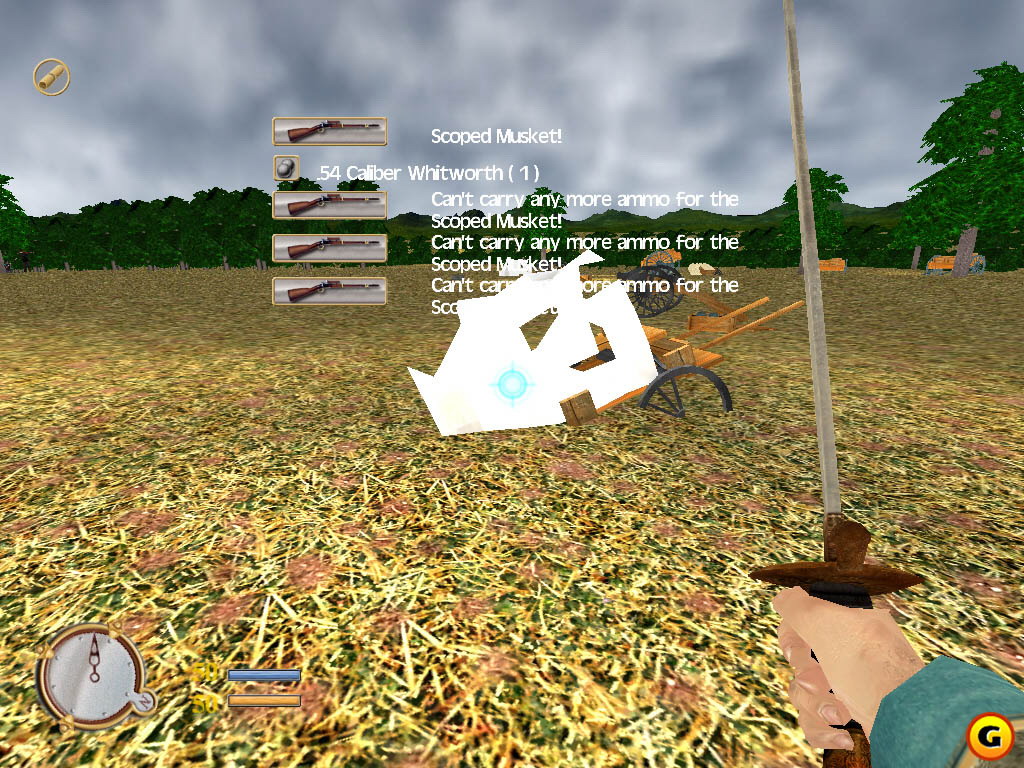
Almost every computer game takes up the same physical amount of space on a store shelf. That physical size is literally twice the size of two video games. Let's say you're an intelligent retailer. Like all retailers, you have a limited amount of floor space to allocate to products you wish to sell. Would you rather stock two copies of the PlayStation 2 version of Need for Speed Underground, Electronic Arts' best-selling racing game? Or would you rather stock one copy of Big Rigs: Over the Road Racing?
Seems like an obvious choice. But only in hindsight. You didn't know Need for Speed Underground was going to be a huge hit. You also didn't know Big Rigs: Over the Road Racing was possibly the worst game of all time.
Let's say you're an aspiring game publisher. You've got a really good game on your hands, and you're confident that positive word of mouth will help your game to succeed. Unfortunately, the less-savvy retailers out there are relegating your game to the back of the store, beside Big Rigs: Over the Road Racing. You haven't proven yourself. The retailer will take a wait-and-see approach with you.
You're completely screwed. Customers are completely screwed. The retailer is completely screwed. Nobody wins but the publisher of the horrible budget game that should never have been made.
I'm afraid I don't have an easy solution to this situation. I'd tell you not to buy these games, but of course, you're not the one buying them. There's no equivalent of the Food and Drug Administration when it comes to games, either, so there's no governing body in place to stop these games from quietly finding their way onto store shelves. Retailers aren't clairvoyant; they need to put in orders for games well in advance, so in a sense, they're as unsuspecting as some of their customers. And, fortunately for those retailers, they don't offer return policies. Otherwise, they wouldn't make one red cent off of games like Big Rigs: Over the Road Racing. And, whatever money retailers do make from games like this couldn't possibly be greater than what they'd be making if they sold better games for the same price.
Maybe I'm making too big a deal of this matter. As I've already said, clearly, these games aren't selling in large quantities--and perhaps when idiots waste their money on games like that (yes, yes, I know), it's just the wake-up call they need. Still, the nefarious nature of the business model at work here makes my skin crawl. I can only hope that our coverage of these unbelievably terrible products helps shine a painfully blinding spotlight on the deplorable organizations responsible for them. On the other hand, I'm also familiar with the saying that goes something like, "There's no such thing as bad publicity," so perhaps the publishers of these games don't mind the extremely negative reviews they get from whichever publications are cognizant enough to take notice of their unassuming yet sinister products.
Maybe you're thinking about buying Big Rigs just to see how bad it is for yourself.
Before you do that, I have a favor to ask and a reminder for you. The favor is this: If you really want to see how bad one of those really bad games is, just watch one of our free gameplay videos--please, don't give the publishers of those games any of your money, and don't encourage retailers to restock. Because (and this is the reminder), the next time you find yourself lamenting the commercial failure of truly excellent and inventive games, such as your Planescape: Torments and your Beyond Good & Evils, realize that the success they rightfully deserved was cut short at least in part by their inconspicuous presence on store shelves cluttered with incredibly poor products that have no business being in this world.
| Andrew Park Senior Editor |
An Online RPG Launch Checklist
Several of us have written on the topic of massively multiplayer online RPGs before--what they're really about, where they're headed, and, unfortunately, what issues they still seem to have that make them difficult to recommend wholeheartedly. For whatever reason, these continue to be issues with technical stability, ease of use, and lack of content, to say nothing of an online RPG's most infamous features: monthly fees and regular time commitments. I've spoken about some issues in previous columns, and I think it's time I covered the subject in a bit more detail.
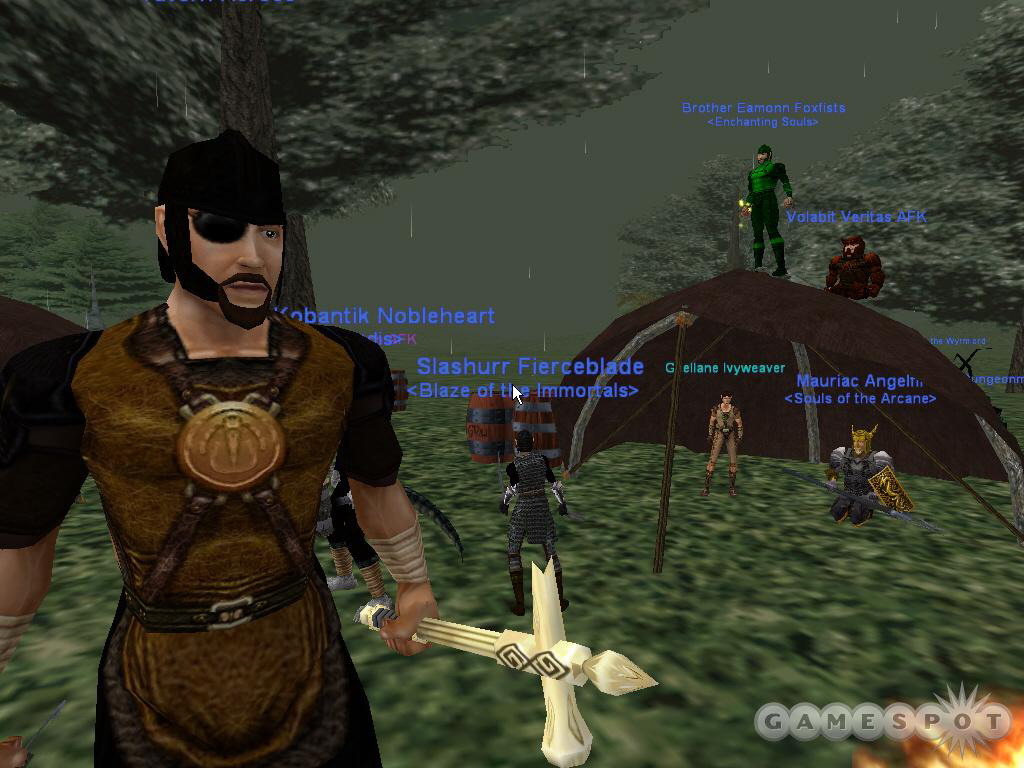
Technical stability in a new online RPG should be a given, at this point. If you're looking at launching an online RPG, and it isn't running smoothly on a 56k dial-up connection, with minimal lag and no disconnects, it's time to head right back to that drawing board. Don't even think about releasing your game in this state. EverQuest, Dark Age of Camelot, and Final Fantasy XI, three already-established games in this competitive genre, already run problem-free, and for your game to compete with them, it must at least be as technically sound, if not more so. Let's also be honest with ourselves here--the online RPG audience doesn't consist of a huge pool of uninitiated players who are falling over themselves to pay $12.95 a month for a new online game. The monthly fees and lengthy time commitments (which can often prevent players from joining up with their friends online) that are intrinsic to online RPGs create a high enough barrier of entry as is. Your potential player base will consist largely of either complete beginners who have never played an online RPG (and are perhaps not comfortable with the idea of paying monthly fees to begin with) or veterans who have already invested time and effort into another game to which they may return. Neither group will enjoy, or even tolerate, technical issues for long.
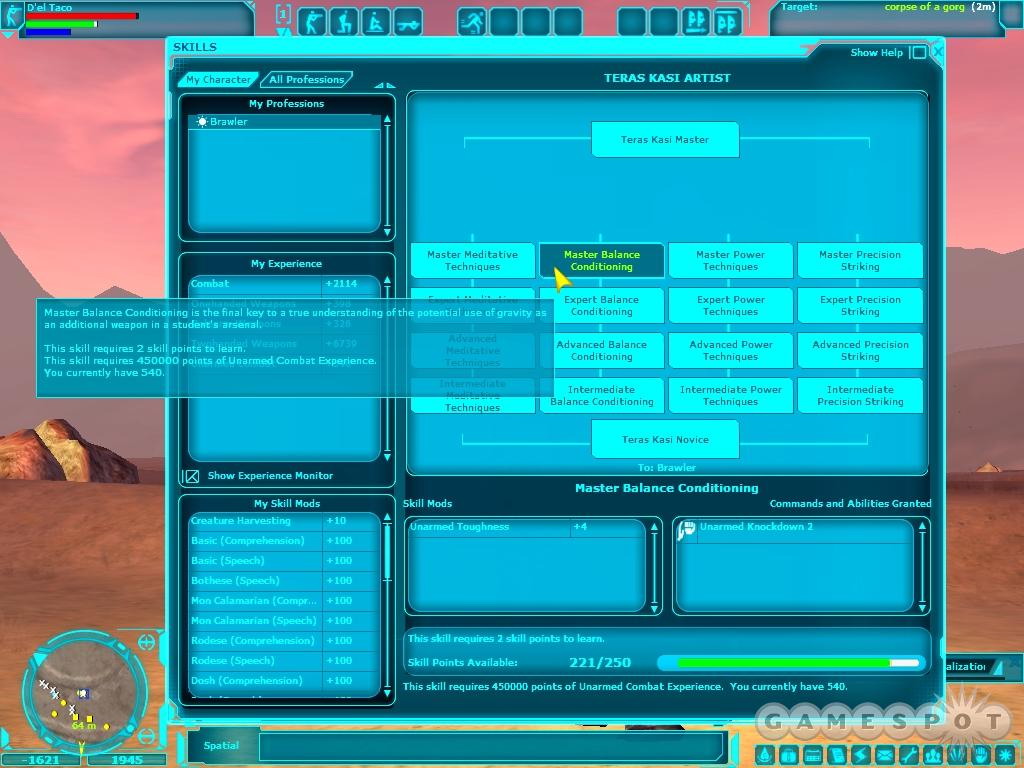
Ease of use is another point that, for whatever reason, continues to be an issue in most online RPGs. While a few recent games, most notably Asheron's Call 2, have attempted to ease new players into the game, most online RPGs, new and old, continue to have convoluted interfaces cluttered with too many buttons, too many menus, and too many details to keep track of. There's nothing wrong with creating an online RPG that has depth and complexity--but there is plenty wrong with such a game if it has a clunky, cluttered, unintuitive interface that needs to be tinkered with considerably before it's even usable. Let's face it--online RPGs in their current state are intended to be games that players get hooked on and play for hours at a stretch, which is why you have to do everything in your power to remove obstacles between your players and their enjoyment. That means you must have an easy-to-use interface, intuitive gameplay, and a painless installation process. I don't want to seem like I'm unfairly singling out a specific game, but this one shipped on four CDs and required an obnoxious startup process involving multiple account key numbers and a combined installation and initial patching process that took more than an hour on a networked T3 connection. It also went out of its way to make sure that players couldn't immediately choose to play on the same servers as their real-life friends. This lunatic system was intended to balance out server populations, but it made playing with your friends (a very important priority for online RPG fans) a huge pain in the neck, at the very least, when it should have been a given.
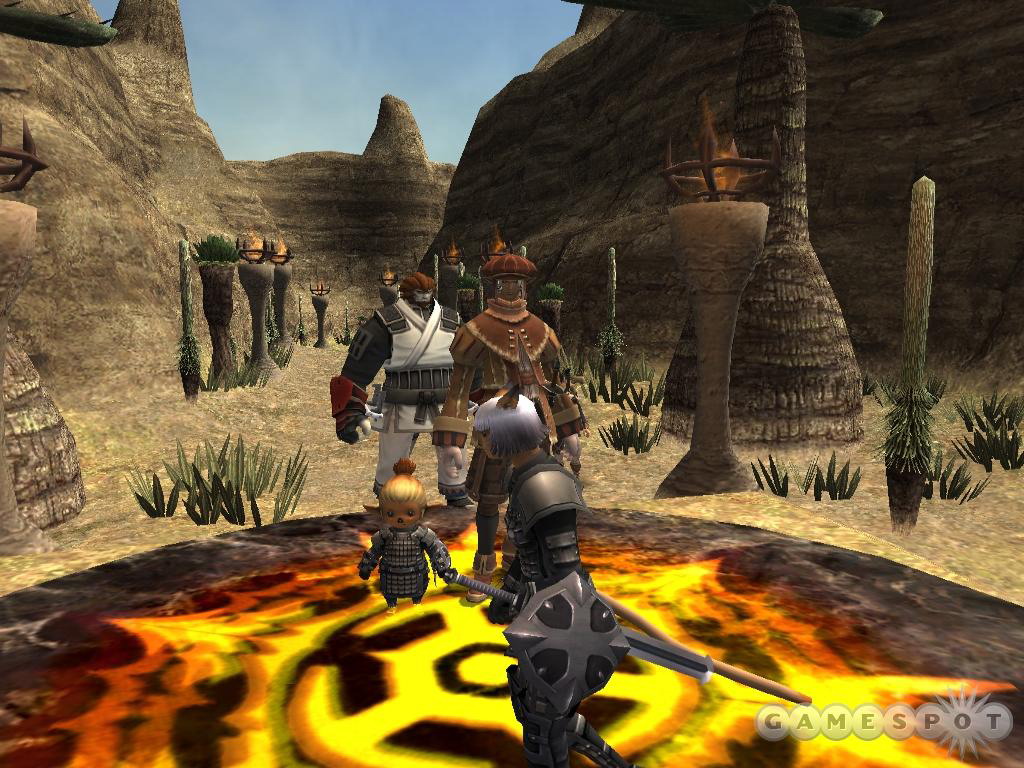
Lack of content in an online RPG is a subject I could probably write an entire column about, which must be why I did just that. When you look at it in a specific light, it seems like common sense--if you expect players to play your game for 15 hours a week, but you ship the game with only 15 hours' worth of content, you've got a problem. In this regard, Final Fantasy XI actually enjoyed a unique advantage, since the game had been released at retail on the PlayStation 2 console in Japan months before it was released stateside on the PC. It arrived on North American PCs as a surprisingly broad game with lots of quests and interesting things to do, though it reportedly debuted in Japan as a buggy PS2 game with no content. Most online RPGs aren't in this unique position, nor should they be--they should launch with loads and loads of content right out of the box. Already-launched games like EverQuest and Anarchy Online have been maturing and growing for years and have had enough time to generate a huge body of content that's available to its current players right now. In order to make your online RPG a more attractive prospect than these games, you certainly can't offer any less. While it's perhaps not appropriate for every online RPG setting, Anarchy Online's content-on-demand "mission" system stands as a great example of providing continuous content for players on the fly. The system generates random quests for loot, and these quests are populated by enemies of an appropriate level and can be run by players of just about any level (and, coincidentally, they can also be completed within 30 to 60 minutes, which makes it much easier to fit the game into your schedule). It's no wonder that other games, like Neocron and Star Wars Galaxies, "borrowed" this concept afterward. In order to continue to make online RPGs better, more-evolved games that more people will want to play, developers will have to look for more innovative solutions along these lines.
These are, by no means, the only issues that online RPG developers should be aware of. Online RPGs must also allow for social and community-building options that let players casually chat or form long-standing player associations. That means everything from having goofy chat animations, like EverQuest's sword salutes, Anarchy Online's flamenco dancing, and Star Wars Galaxies' preposterous disco dancing, to having streamlined guild options and player housing. But the above issues are among the most important, and they remain the most prevalent--because they're probably the most difficult to deal with. I submit them as something to think about if you care to.
| Alex Navarro Assistant Editor |
Side Talkin', So Misunderstood, Yeah. Side Talkin', You Really No Good.
What I am about to admit to all of you, the GameSpot readers, is something that I've been wrestling with for several weeks now. This is not an easy thing for me to do, being that I know many of our readers look up to and respect us, as editors, and look to us for guidance when it comes to our views and opinions on the game industry. But, to maintain that respect, I feel like I must be completely honest with all of you. And to keep that honesty going, I have to admit something that may shock, alarm, or perhaps even horrify you.
You see, I have an N-Gage.

Let's back it up a second, so I can explain the situation. I previously had a Nokia 8200-series phone--one of those really small phones all the kids were into. Anyhow, I had that phone for near on two years, and it worked just dandy, up until one day when it just stopped working for no apparent reason. Now, I'm not really any sort of phone junkie by trade; however, I need to have a cell phone. It's just common sense. And when your phone refuses to allow a signal in even the most metropolitan of areas and can't maintain a call longer than 20 seconds, you have a problem. Enter the N-Gage. As you might expect, we have a few N-Gages around the office for the purposes of reviewing games. When my old phone crapped out, I had just started doing my first N-Gage review. At first, I would simply transfer the SIM card out of my old phone and into the N-Gage just for the sake of getting the N-Gage to work. Then, slowly, I began actually using the N-Gage as my cell phone, for lack of a better option. Now, it seems, I am firmly attached to this wacky cell phone gaming system, at least until I get up off my ass and go buy a new phone.
Now that the confession is out in the open, I want to get a few things off my chest. First off, I am not, by trade, someone who openly dismisses something simply based on buzz response. Normally, I like to give something at least a few minutes of my time before I decide whether I hate it or not. After having spent a number of weeks with the N-Gage, I have come to the conclusion that I cannot stand the thing. Now, I'm not even talking about the N-Gage's gaming functionality. In that regard, the system is what it is, and there are a couple of games I don't mind playing on it, so clearly the gaming portion of the system has the ability to have good games, even though there aren't very many of them right now. What's mostly perplexing to me is how Nokia, a company that makes its bankroll developing cell phones, could deliver a product that is so utterly useless in a cellular phone capacity.
The fact is, the N-Gage is simply one of the least user-friendly cell phones ever put on the market (and I'm even including those gigantic 1980s-era cancer-giving monstrosities in this list). The phone's menu setup is rather unwieldy and poorly put together, and obviously the whole deal with having to pull out the phone's battery in order to put in new games, or the card to make the phone's MP3 technology work, well, completely sucks. The fact that the phone actually includes no cell-phone games whatsoever is also pretty angering. Yes, I understand that Nokia wants to sell its retail games for this thing, but really, would having a new version of Snake on here really detract from whatever desire I might have to go out and buy Splinter Cell for the N-Gage? I think not. However, what is perhaps most insane about this thing and that trumps any other inherent issues that exist in its flawed design as a phone is the whole deal with having to hold the thing sideways against your head to talk. It looks utterly ridiculous to be holding a phone in this manner, and it feels completely unnatural. This bizarre methodology has actually sparked something of an Internet phenomenon recently, including this brilliant little site, called Side Talkin'. Clearly, some people have far too much time on their hands, but I can't help but applaud the ridiculousness of it all.
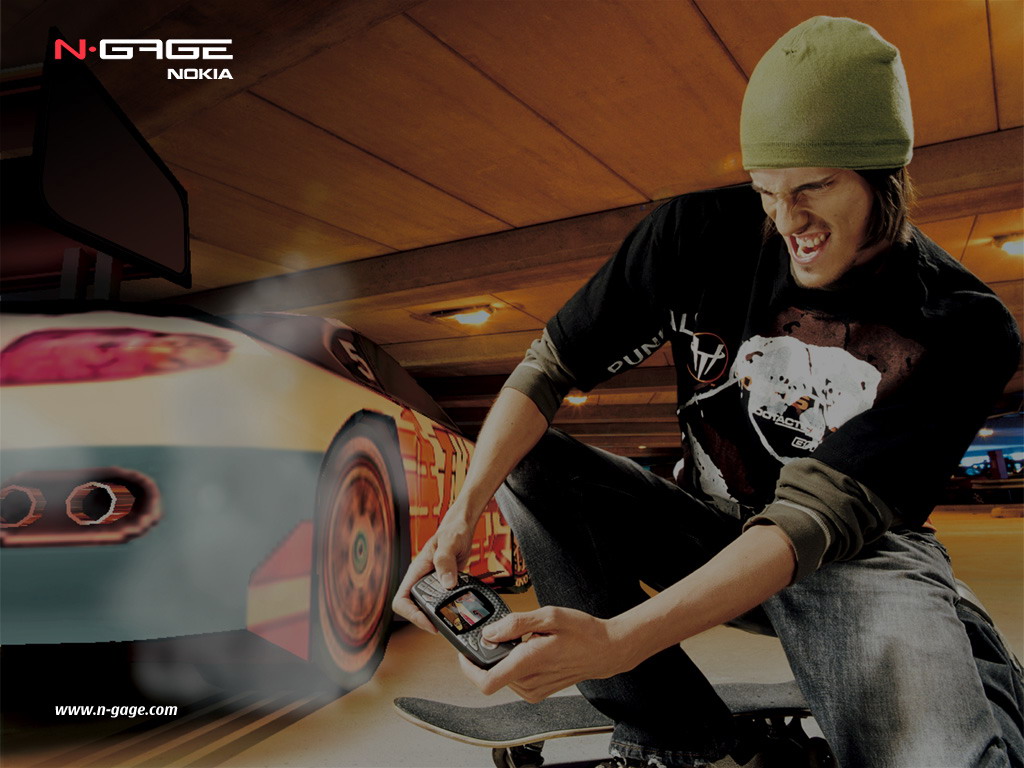
All of these complaints are valid, but ultimately, they aren't the reason I came out and wrote this article. In fact, my biggest motivation is based on something that might seem sort of arbitrary and dated by this point, but regardless, I will explain. Long ago, when the N-Gage was still just in hype-machine mode, I remember a quote coming from someone at Nokia that essentially stated that the N-Gage was the perfect alternative for those who were too embarrassed to take their GBAs out in public. Specifically, I believe the insinuation was made that the GBA was for "10-year-olds," or something to that effect.
The only reason I bring this quote up now is that, quite frankly, since I've had this N-Gage, I've been questioned, mocked, and generally harassed by people about a billion times more than ever before in regard to a piece of portable technology in my possession. I could be sitting on a bus or a street corner just about anywhere in the world, playing my GBA SP to my heart's delight, and no one would give me a second look, except perhaps to ask me what game I'm playing. Yet it seems every single time I pull out my N-Gage to do, well, just about anything, I'm suddenly being mauled by people asking, "What the hell is that crazy thing?" and such. It's even worse when I'm around anyone who is actually in the know in regard to gaming because of the perceived stigma surrounding this thing. I'm in an EB right around Christmas, and someone calls me on my cell phone. So, I pull out the N-Gage--instantly, every clerk behind the counter gives me this look of "Oh my god!" One even goes so far as to ask me, "Did you actually buy that thing?" Ironically enough, a small stack of N-Gages sat discreetly behind the very counter this person was standing behind. I opted to say nothing.
Some other memorable quotes I've gotten about my N-Gage include:
"My god! It's, like, some kind of taco phone!" - My girlfriend.
"Watching you talk into that thing is kind of making me want to kill myself." - A friend.
"Is that like the new Game Gear or something?" - A member of my band, whom I immediately punched in the chest.
What is the moral of these nonsensical ramblings? I'm not entirely sure there is one, really, but I just kind of felt like I, as a regular N-Gage user, should chime in about this whole debacle. I, for one, wish the N-Gage didn't have this stigma of shame surrounding it, but when you really look at how the thing is designed and spend some time trying to use it on a regular basis, you kind of begin to understand how it earned said stigma. Eventually, I'll probably go ahead and get a new phone, so I won't have to continue to transport this thing outside of the office any longer and continually deal with people's morbid curiosities and general harassment. Don't get me wrong, I can deal with harassment and questions if necessary. I just find it sadly ironic that I even have to deal with them in the first place, considering this device was supposedly designed specifically to be the kind of thing people would want to show off in public. Funny how things work out sometimes.
| Jeff Gerstmann Senior Editor |
Making the Connection
As far as the GameCube is concerned, 2004 is going to be the year when all the company's "connectivity" talk will finally come to pass. Sure, we've seen games that use the Game Boy Advance-to-GameCube connection, but none of them really relied on it last year, with the exception of that dopey freebie, Pac-Man vs. Well, at least the price was right for that one.
Anyway, Final Fantasy: Crystal Chronicles is just around the corner. It'll be the first big game to really force you to use that connection by putting necessary status info on the GBA screen when you play with more than one player. The action RPG seems like a neat idea, but unless you happen to be down with three other people who want to slog through an action RPG with you, you probably won't get much out of it. For some, that won't be a problem at all. Personally, none of my friends want anything to do with anything Final Fantasy-related, so I'll either be roping coworkers into playing it, or--the more likely scenario--I'll just skip it entirely. I can't say I'm terribly broken up about it, though. Carrying around a big bucket from place to place doesn't really sound like my idea of fun. But hey, maybe it'll be great, right? Right? Anyone...still...OK, let's move on.
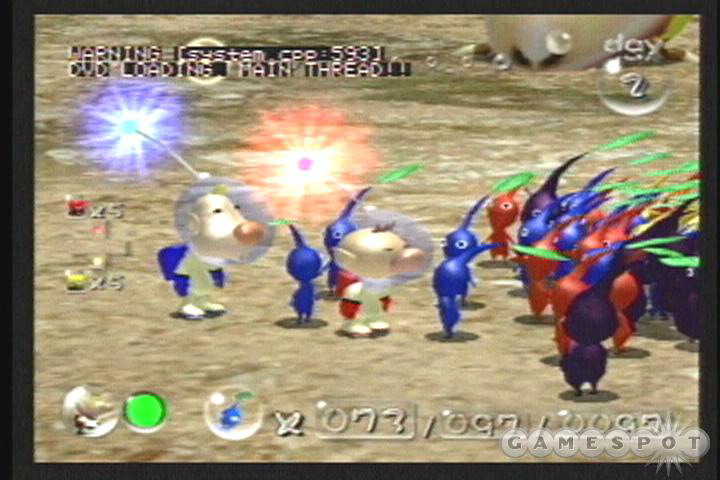
Nintendo originally had two Zelda games planned for this year that would take full advantage of the four-player, four-GBA setup. Wisely, the company has merged the two games into one package. Four Swords Plus will now contain the GameCube version of Four Swords, which originally was just a multiplayer add-on for the last Zelda game on the GBA, and Tetra's Trackers, the seemingly dull scavenger race game that has you doing laps around a town. I played both of these games back at E3 last year. Granted, they weren't finished, but even the basic concept seems a little half-baked to me. These seem more like minigames than full-on products, and I really don't see people who aren't already Link lunatics signing up for this trip.
For the company to push the connectivity angle so hard back at E3 last year, you'd think that Nintendo would have a lot more to show than this stuff and, like, some little Sims Bustin' Out minigame or play-calling screens for a football game. That's all pretty easy stuff. So I have to imagine there must be more in the pipeline from Nintendo that will take advantage of the Game Boy Advance connection. If you sit down and think about it, I'd bet that you could come up with some cool ideas for this connection in Nintendo's upcoming games. I have to imagine that Pikmin 2 will have to have some sort of GBA support. The genre seems perfect for some kind of status screen or Pikmin-raising simulation or something. I would also take a guess and say that the next Mario Party game--uh...Mario Party 36 or whatever number they're up to now--would be a lot more interesting than the previous installment if some of the minigames worked in a little Game Boy Advance magic. Maybe Metroid Prime 2 will use it to display scanning results.
I don't know--I'm not entirely against the connectivity idea. It seemed like a neat idea back when Sega had a screen on its memory cards, even though it was only barely used there, and certainly the GBA is more powerful than the VMU. I definitely think this sort of feature doesn't serve as a replacement for, say, online gaming, which the GameCube is still sorely lacking. And none of the ideas that have surfaced so far really take the concept to any revolutionary places. I guess that for all the talking Nintendo was doing about the functionality and exchange between devices, I expected a little too much. Or, hopefully, something is waiting in the wings that will, once and for all, justify Nintendo's focus on connectivity. I suspect we'll find out one way or the other sometime in 2004.
| Tim Tracy Senior Producer, GameSpot Live |
What Is the "Third Pillar"?
It's official: 2003 has come and gone, and a new year is now upon all of us. It's a year that promises to be full of surprises, and at this early point in the year I can honestly say that I have no idea what kind of craziness is going to go on in the months to come. To be honest, the last few months of 2003 left me completely and totally drained. Every day seemed to bring some new kind of insanity, whether it was a gigantic game being released or a gigantic game being pushed back. I'm really glad that 2003 is finally over. If I learned one thing last year, it's that I've got to do a better job of being prepared for the unknown, and if that means speculating on what is going to appear at E3 some four months from now, then so be it.
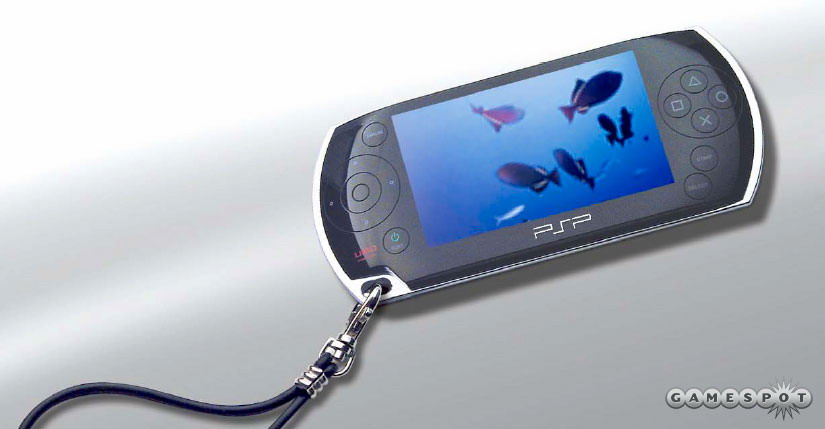
We all know that Sony is going to show off the PSP, which will potentially send shockwaves throughout the industry. Nintendo has had a stranglehold on the portable market ever since the Game Boy was released and has simply trashed each and every competitor that has stepped up. What Sony has up its sleeve could very well give Nintendo a run for its money, provided the price point and games are there. Since there's no solid information on those last two key bits of information, I can't really speculate much more on the subject until something more concrete slips out. Nintendo, on the other hand, has something up its sleeve as well, which has message boards all over the Internet churning with rumors, speculation, and conspiracy theories. All I know for sure is that we probably won't hear a darn thing about whatever it is until Nintendo shows it off at E3 this year.
On any given day of the week, some new fuel is added to the fire that is the rumor mill surrounding Nintendo's supersecret project. It's important to keep a clear head around these sorts of things, simply because the way information is spread on the Internet is akin to playing a game of telephone with your friends at a party. Details, factual and fabricated, get more and more twisted as they pass through every new person. I generally take just about everything I hear with a grain of salt, because most of the time, the rumors simply aren't true. But hey, it certainly is fun to cook up your own theories, isn't it?
We all know Nintendo has always owned the portable gaming market. Nintendo also has some of the most rabid fans of all time, and just about anyone who has every played any number of first-party Nintendo games undoubtedly has a favorite character, game, or series. Retro gaming is also really big right now. Who doesn't love reliving the days of old by playing the games they grew up playing? Nintendo just released the iQue Player in China, which is pretty unique in the way that consumers download games to the unit rather than purchase a cartridge or disc. Here's my theory, keeping in mind that this is all speculation on my part: Nintendo's new "Third Pillar" will be a small handheld device, similar to the Game Boy Advance, but similar to the iQue player in that games will be purchased and downloaded directly to the unit, and these games will consist mostly of the games that Nintendo is truly famous for--the games that people hold near and dear and certainly wouldn't pass up the chance to play at any given time. Think of it like an iPod, but with classic Nintendo games.
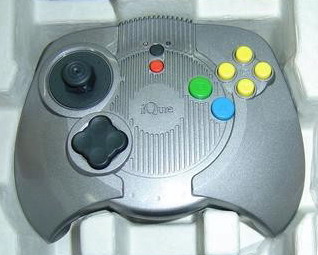
This theory probably has absolutely nothing to do with what the actual product will be, and I'm sure that I'll be just as surprised as all of you when it's unveiled later this year. There are two things I know for sure: 2004 is going to be filled with excitement, and I definitely need to start drinking less coffee, lest I start cooking up more crazy ideas. Until we meet again, keep all of this on the Ultra-DL, K?
| Ryan Mac Donald Executive Producer, GameSpot Live |
The Secret Worlds of Hardcore Gamers
This past week I started working on a new story, and, on the surface, it didn't seem like there would be a whole lot to it. But, as you'll find out, I had no idea what I was getting myself into. I had recently met the leaders of one of the largest outfits playing PlanetSide today--the Devil Dogs. The group has upward of 1,350 members who actively participate and coordinate with one another in order to destroy the competition. I decided to take my video camera, microphone, and maybe a light for what I figured would be an hour or so for a video story that would show just how hardcore and organized these guys are. In fact, I planned for what you're reading right now to be a video of the aforementioned story. What I didn't count on was that I totally underestimated all of the variables involved--especially since they wanted to coordinate a massive offensive with as many troops and vehicles at one time as possible to show off for the camera. In order to do this, they needed a bit of time to give all of their troops a heads-up.
Without spoiling any of the action that you'll see next week in the completed video feature, which will feature interviews with some of the Devil Dogs and will showcase their ability to decimate opponents through the use of massive force, I did want to take this opportunity to set up what you'll be seeing. In fact, unless someone can tell me different, I think you may see more online players in one of the battles than any nonplayers have ever seen before. In any event, seeing these guys in action has got me thinking about the various online worlds that live and breathe every day while the rest of us go to work or school. Granted, the active population is larger on a Friday or Saturday night, but it's always there.
Depending on the response to next week's video piece, I may revisit the idea with other massively multiplayer online games and the people who play them. My theory is that a lot of people are like me in that they are interested in games like Star Wars Galaxies but simply don't have the time to spend trying to improve the lifestyle of their virtual characters. So just like a cameraman going to a foreign land to bring back stories of its people and culture, I may just do the same for the virtual worlds in games. Wouldn't you be interested to know what the day-to-day lifestyle of the ultra-rare Jedi in Star Wars Galaxies is like? Or to find out what kind of real-world personalities drive the virtual Star Wars Galaxies characters, who play as entertainers and just dance all the time? Ultimately, you'll be the judge in deciding whether or not this idea will work.
I'd say I'm a hardcore gamer myself, and I can recall a time when I was just simply insane about Counter-Strike. I guess by most people's standards, I still play CS way too much, but there was a time when I played every night for at least a couple of hours and then 24 hours straight on the weekend. We had a team, and we would study maps, plan tactics, time how long it would take to get from one place to the other--the kinds of stuff that a casual-type player would never even consider doing. But even as crazy as my Counter-Strike squad got, it's nothing compared to the level of organization, dedication, and downright craziness of the leaders of the Devil Dogs. You'll get to see for yourself next week. Until then, shoot straight, and make sure you get at least eight hours of sleep.
| Dan Logue GuestSpotter |
In the Flesh
I'm here today to talk about video game aesthetics. Now, before everyone starts barking, "It's gameplay that's king; graphics are secondary!" and all that, I want to make it perfectly clear that I am not referring to the ethereal 1's and 0's that make up the visual side of our beloved interactive entertainment. No, instead I am referring to the one part of every game that is most often ignored--the packaging. When I hear talk of the future and how broadband-enabled gaming platforms will allow us to download entire games without leaving the comfortable wombs of our homes, I shudder.
Why is that? Well, let's take it back to when you received your first console. For many, this was most likely a Christmas or birthday present purchased for you by your good folks. Remember the excitement as you opened the top of the box and removed the polystyrene-housed console as though you were Indiana Jones lifting the Ark from its resting place (after washing your hands, of course)? Remember how you took the console out of its plastic wrapping and reverentially placed it under the TV and carefully plugged in all the necessary leads? Remember how you had that first game wrapped in glorious, silken cellophane, 60 watts of artificial light reflecting off its surface, practically screaming, "Open me! Open me!"? Even if you'd handled a game box before, be it at a store or at a friend's house, nothing compares to opening your first game. After you remove the game's wrapper (by using the proper seals at first, eventually succumbing to piercing it with a knife), you then spend 30 seconds frantically trying to get the static-charged cellophane off your hands. Then, the last thing you need to do before popping the game in and powering up is open the box to examine the contents.
What a moment. The instructions, pristine and reflective, beckon you to remove it from the case's clasp. "Read me" it says, but you proceed with caution. "Don't manhandle me, for low in value is the returned game with a tattered manual." Finally, you remove the disc itself, admiring the artistry that was put into just the storage medium, and then you play. But where do you store the box? You may keep it by the side of the TV initially, but as your collection grows, you need proper storage to house your burgeoning collection. Ease of access is important, but so is displaying the games so they can be admired. A place where you can look over your collection with pride, reminding you of the enemies you have defeated, the points you have scored, the races you have won, and, of course, the money that has been spent.
When you go to buy the latest release you peruse the shelves carefully, never taking ones from the front row because you know that's the copy everyone's been pawing at. You search in the back, looking for that one perfect case, the one with the crisp, plastic sleeve, the insert carefully tucked away safe from wear and tear. Then, as you look around the store, you're thankful that all the modern game publishers have agreed upon a standard form-factor for all the different games. You can now have Halo next to Vice City, Super Monkey Ball next to SOCOM, all the little ducks lined up in a nice uniform row. No longer do you have to have tatty cardboard boxes lying in cupboards, flimsy CD boxes with chips in them sprawled in front of the TV. You can display them with pride next to your DVD collection. They can sit shoulder to shoulder with highly respected films and not have scorn poured on them for being "kids toys." The best bit, of course, is knowing that when the next generation of consoles comes along, you get to do it all over again.
Perhaps I'm a bit of a fetishist when it comes to the corporeal aspect of the video games, but it's not something I'd want to lose to the "convenience" of downloadable games. I, for one, intend to keep on wearing out the footwear and using up the shelf space for as long as I am breathing. I enjoy the process of buying games. Give me a sturdy case, a shiny disc, and a crisp manual every time. Maybe I'm old-fashioned, but if I can touch it, then it's real.
Got a news tip or want to contact us directly? Email news@gamespot.com
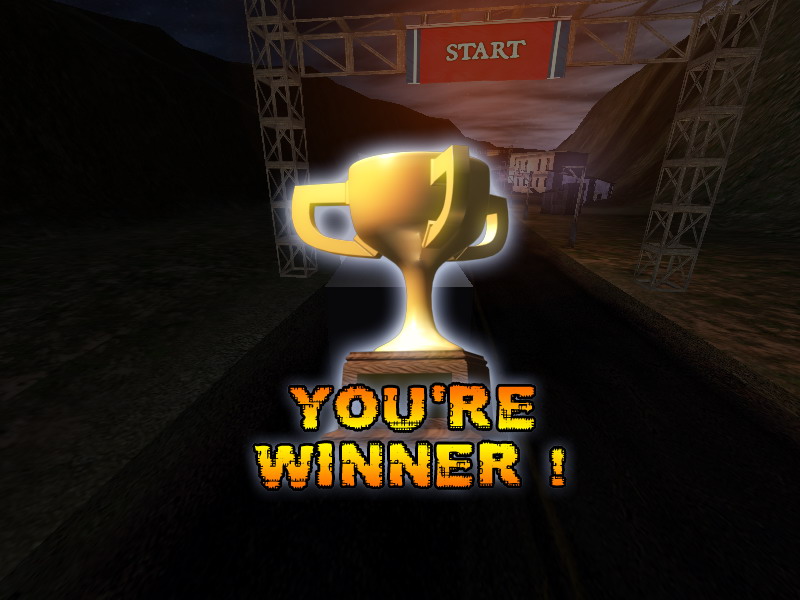
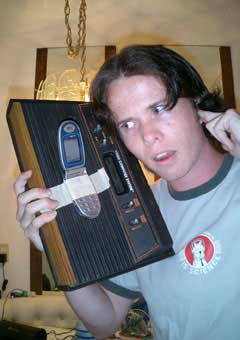
Join the conversation